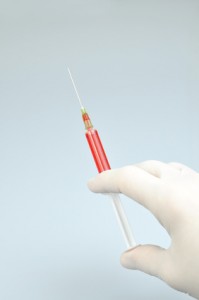International - Written by Barry & Richard on Wednesday, July 31, 2013 15:28 - 0 Comments
Pharma sector in China. Three basic checks to vaccinate businesses against bribery.
 In the last few days we have been contacted on numerous occasions by the media and clients concerned and looking for comment and advice following the unfolding story of GSK in China and in particular alleged corruption.
In the last few days we have been contacted on numerous occasions by the media and clients concerned and looking for comment and advice following the unfolding story of GSK in China and in particular alleged corruption.
Of course, at the present time the allegations are just that. That said they are serious allegations which GSK is taking seriously.
Media questions included: Do we think foreign investors should stay away from China and aren’t these allegations politically motivated?
Cold comfort
On this our view is simple.
Two wrongs don’t make a right.
Put another way, if the allegations in China do turn out to be true (and that remains if at this early stage) then the motivations for making them are irrelevant.
Those who embark in bribery leave themselves exposed to enforcement action whether politically motivated or not.
What about the fact (and it is a fact) that the Chinese healthcare sector is broken, healthcare workers paid very low salaries and corruption is reportedly rife to bridge the public funding gap?
Western (and other) prosecutors are likely to take the view that any company paying bribes is part of the problem, not the solution.
Cold comfort then.
The BBC told us they thought the unfolding story and the underlying allegations shocking: Four Chinese-born Glaxo executives were being held on suspicion of bribery and tax fraud. The arrests followed a raid on a small travel agency, Shanghai Linjiang International Travel Agency, which it was alleged was using fake contracts and travel invoices to generate cash for bribes to be paid to doctors, hospitals, foundations and government officials in order to boost sales. The Chinese allege that close to half a billion dollars in bribes were paid.
Shocking?
Not so much. The healthcare sector has had a history of problems and these sorts of allegations, while extreme, are hardly new.
What should Pharmaceutical companies trading in China do?
Amidst the press coverage, The New York Times reported that documents they had obtained showed that in the last three years at least six other global pharmaceutical companies including Merck, Novartis, Roche and Sanofi had used the same travel agency to make arrangements for events and conferences.
Every pharmaceutical company in China should check with their finance department to see if they have paid the travel agency at the centre of these allegations.
If they have, they would be well advised to do two things.
First stop using them.
Second, dig deeper and understand what the Travel Agency did for the invoiced amount.
As soon as allegations of wrongdoing surfaced it was reported that Sanofi, Roche and Novartis stopped using the travel agency in question.
Meanwhile Merck was quick to release a statement in which they said they had stopped using the travel agency in 2011 after introducing a new procurement system.
Roche told The New York Times that they had worked with various agencies in China for business travel and organising events, including Shanghai Linjiang International Travel Agency, adding
“Once allegations of illegal behaviour by the agency on behalf of other parties were made public, we made an internal decision to immediately stop working with this agency, and have begun to review the documentation of our previous interactions with them. The review is currently ongoing”
The right response.
How much diligence is due?
The GSK story is in its infancy. But already it highlights how important it is for any companies doing business in China (or any other emerging market) to undertake due diligence on suppliers, JV partners, distributors, agents and consultants.
If what is said is true about the travel agency in the GSK allegations, namely that they did not provide any services at all, then basic checks to confirm the services the travel agent actually did provide would have revealed the truth.
If no services were being provided then there would have been a dearth of underlying paperwork relating to tickets, hotel bills, correspondence etc. In our experience, while it is possible to falsify all of these things, buy fake invoices, photoshop photos, manufacture receipts and so on – the truth is that most do not bother.
Put another way asking a few questions and requesting copies of underlying paperwork to verify claimed services in an invoice in the finance department records very quickly reveals whether there is something to worry about, or not.
As a general rule the less underlying work product there is the more likely there may be something to worry about.
History shows that the relationship between pharmaceutical companies and healthcare professionals is littered with examples where the potential and inherent conflicts of interest result in problems.
The solutions can be simple.
- Know who your partner is and ensure there is no conflict of interest; and
- make sure that whatever service that is being paid for is provided; and
- that the price paid is a market price and reflects the work done.
It is a shame that these basic rules are so often overlooked.


